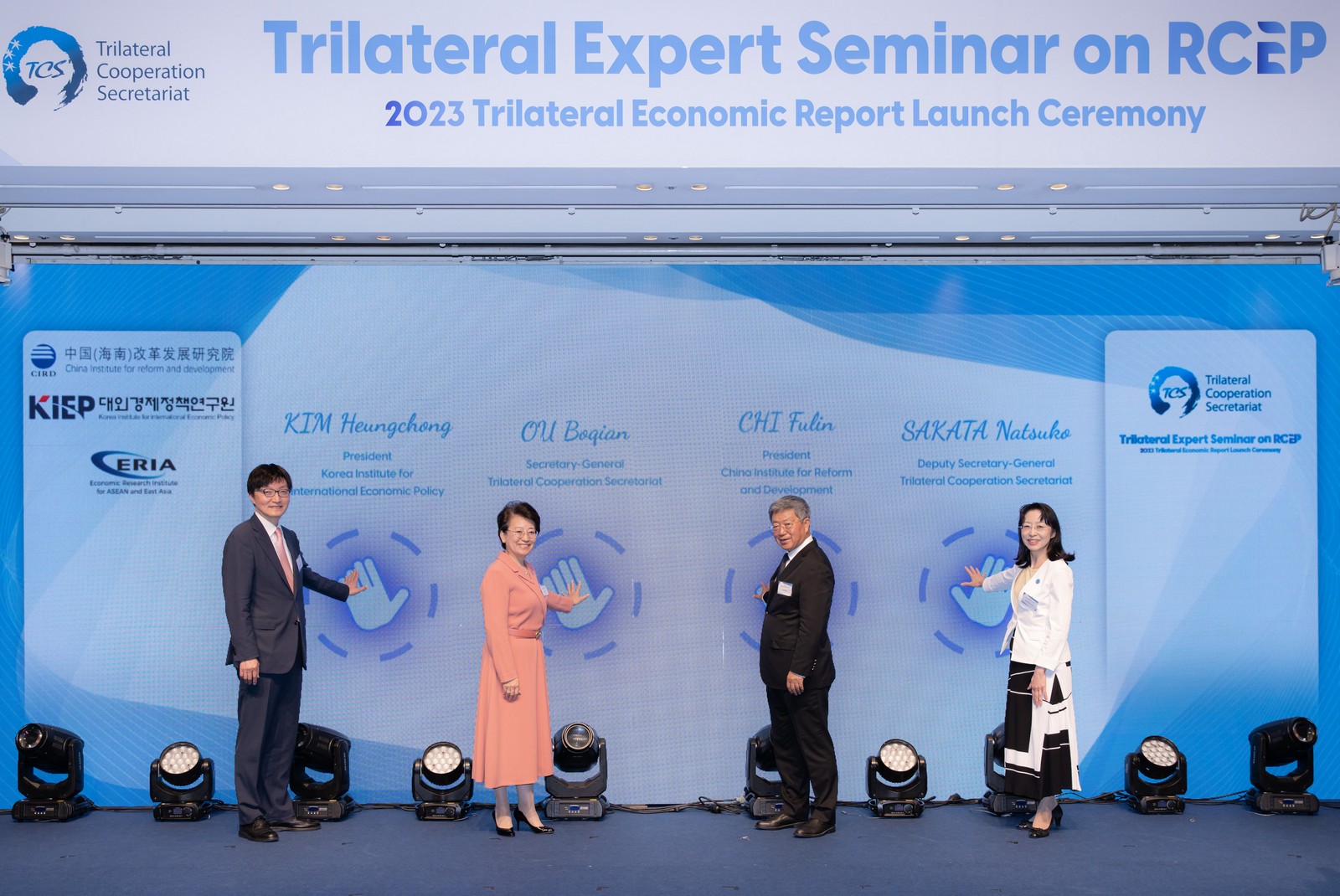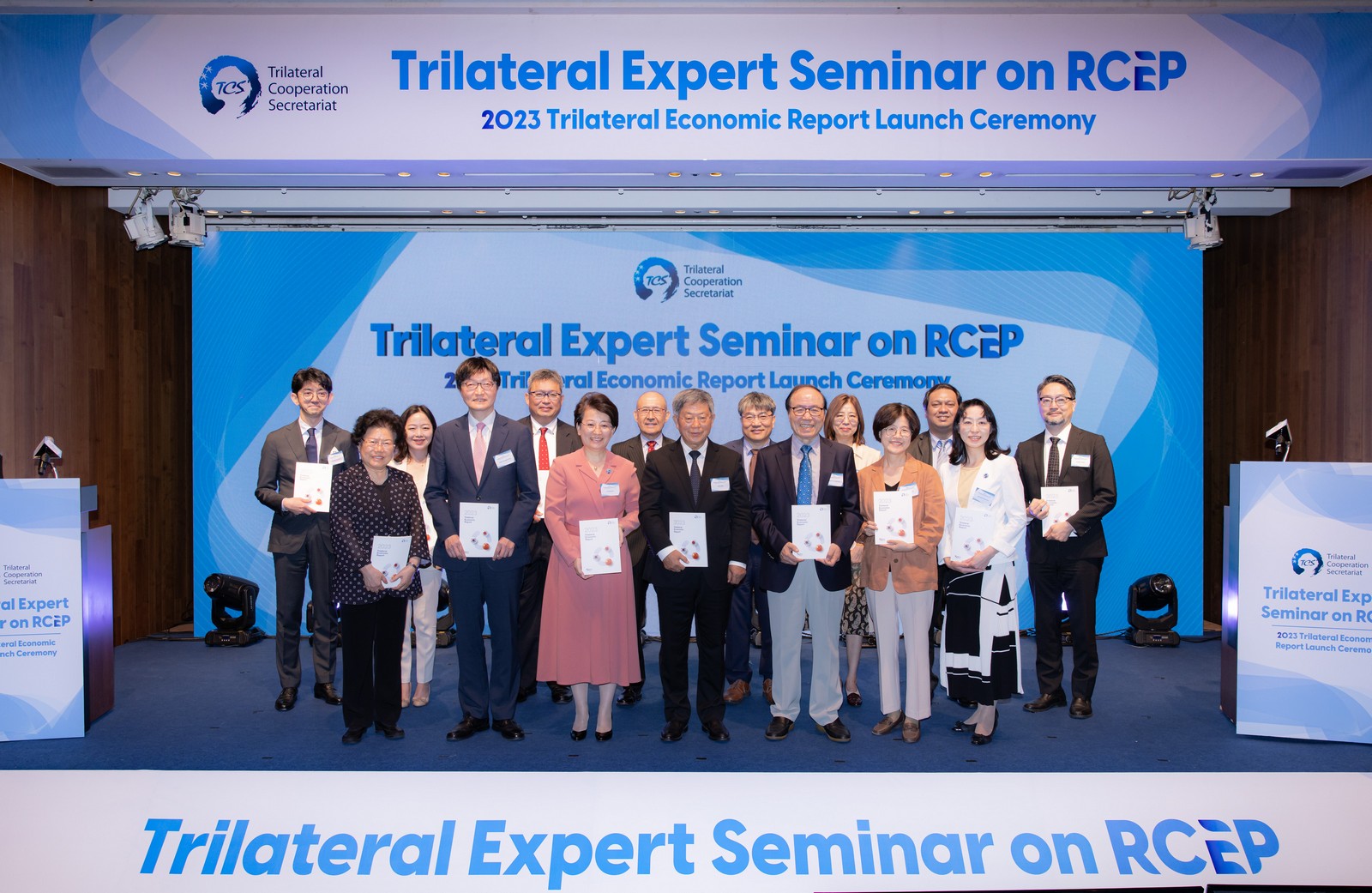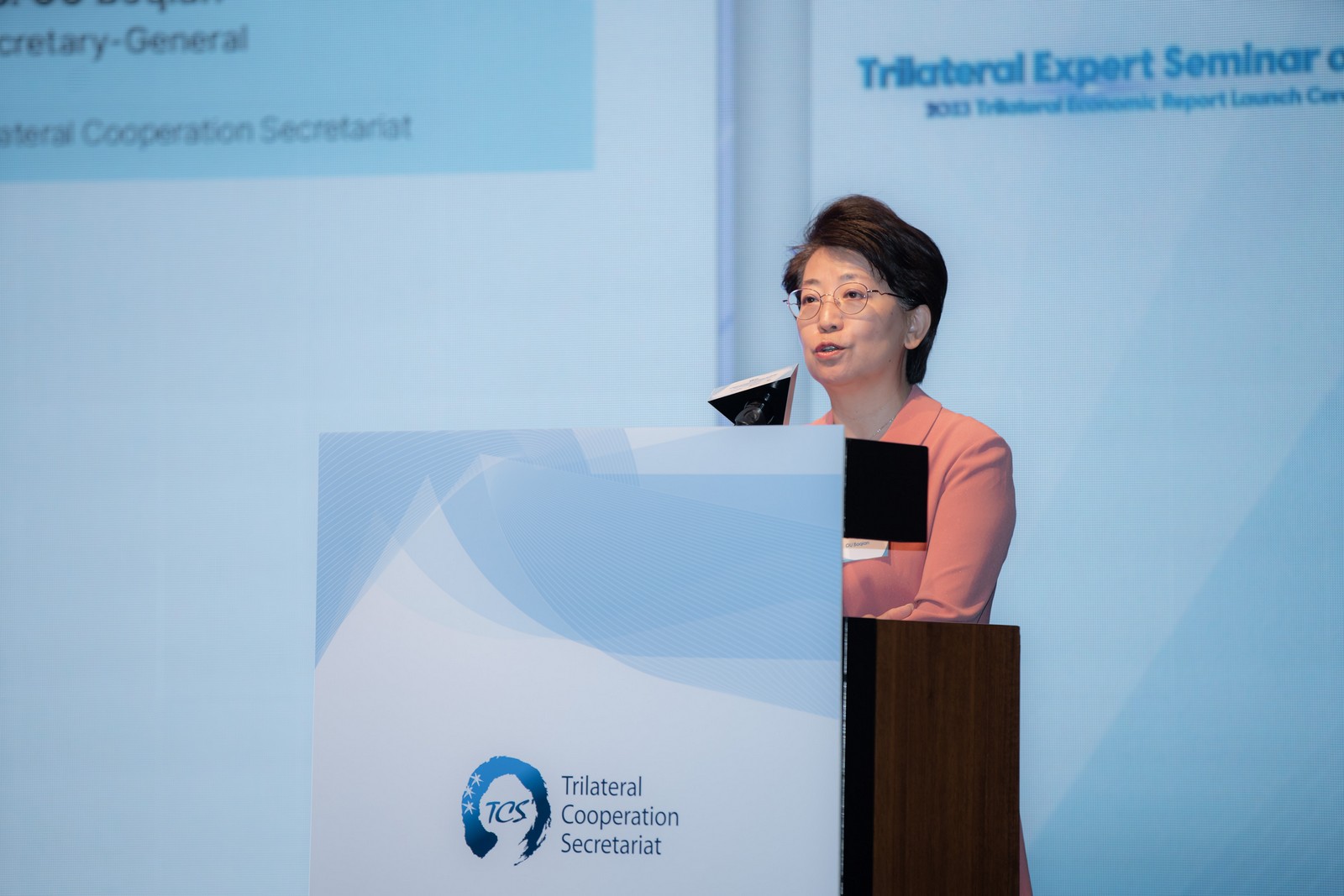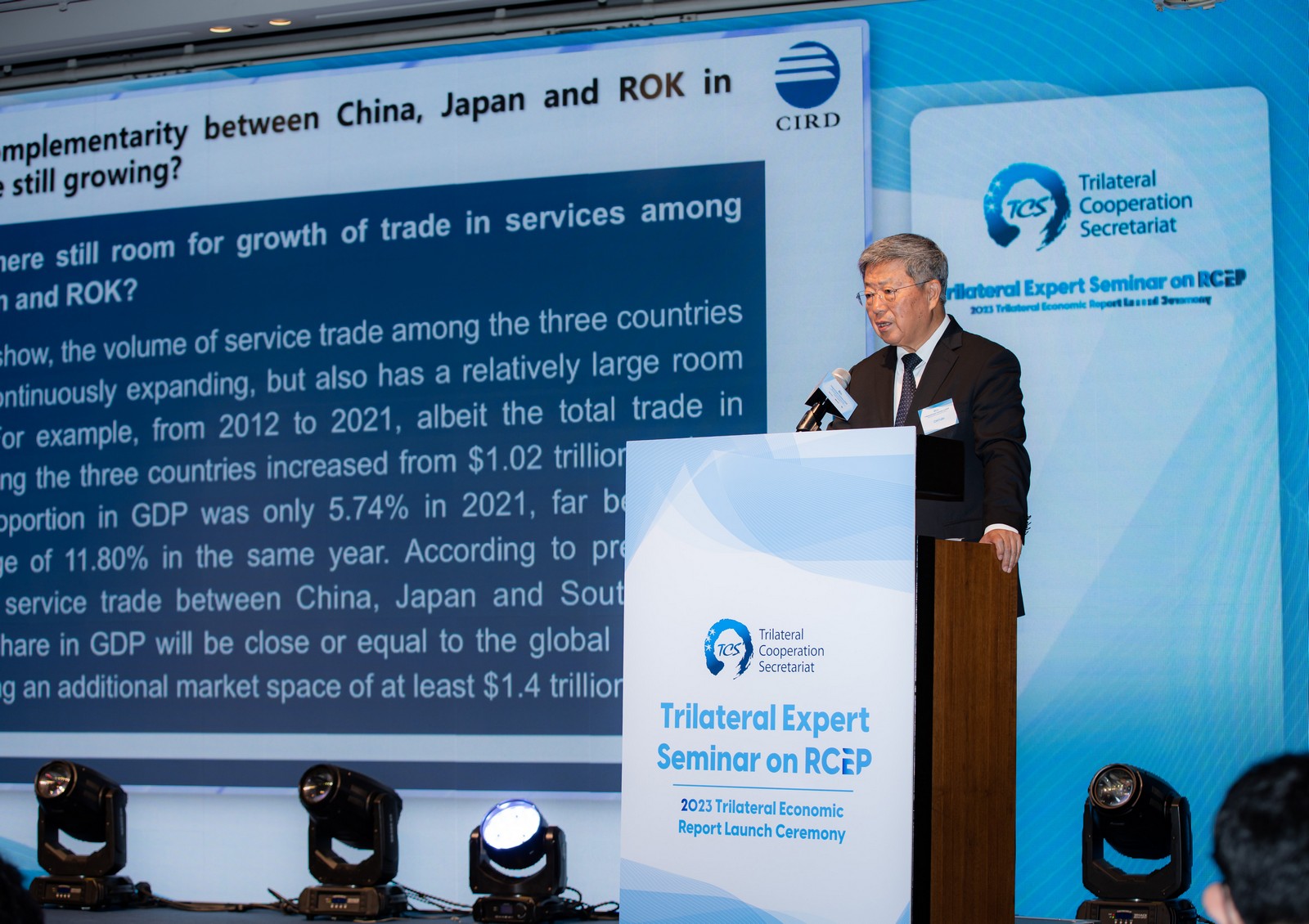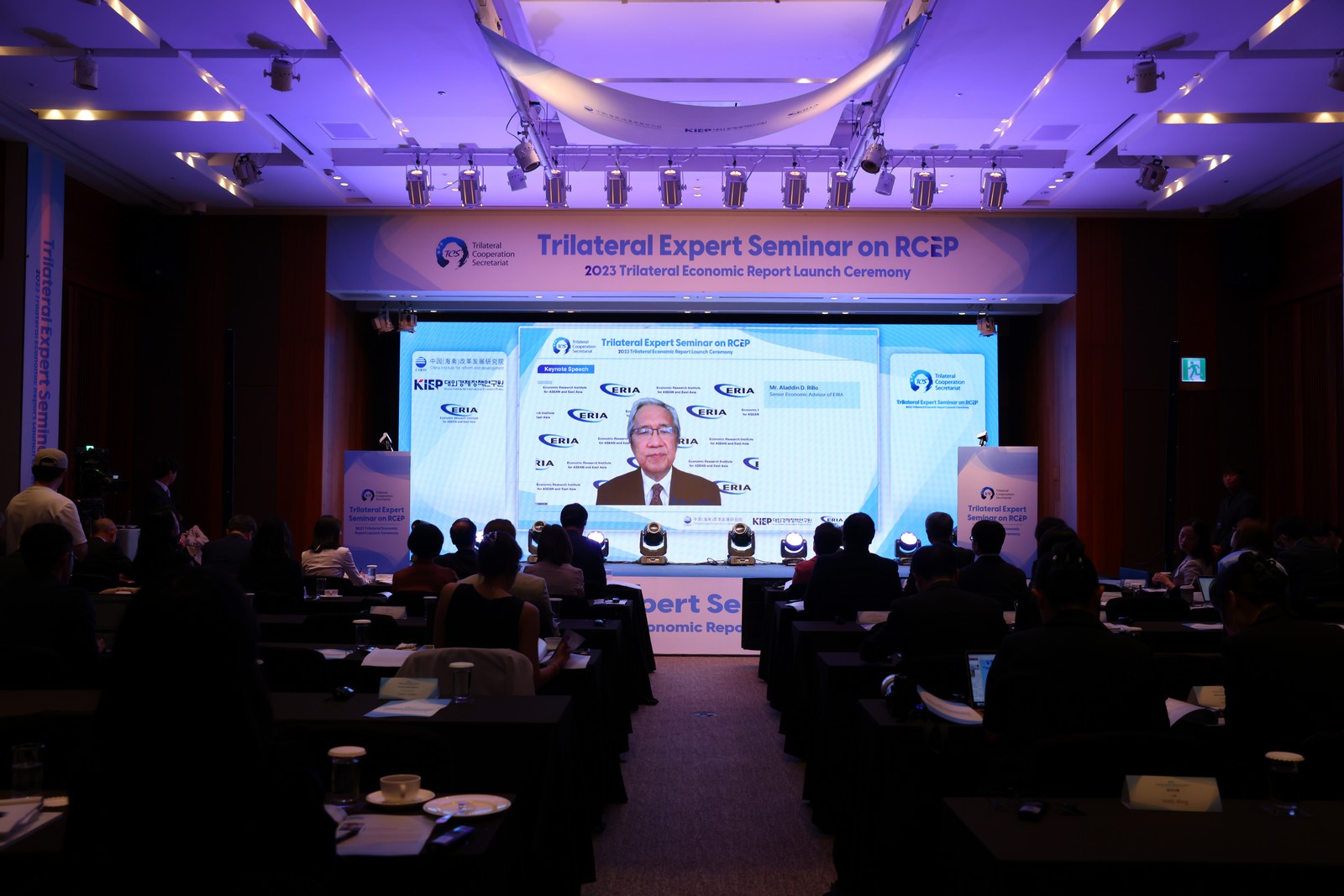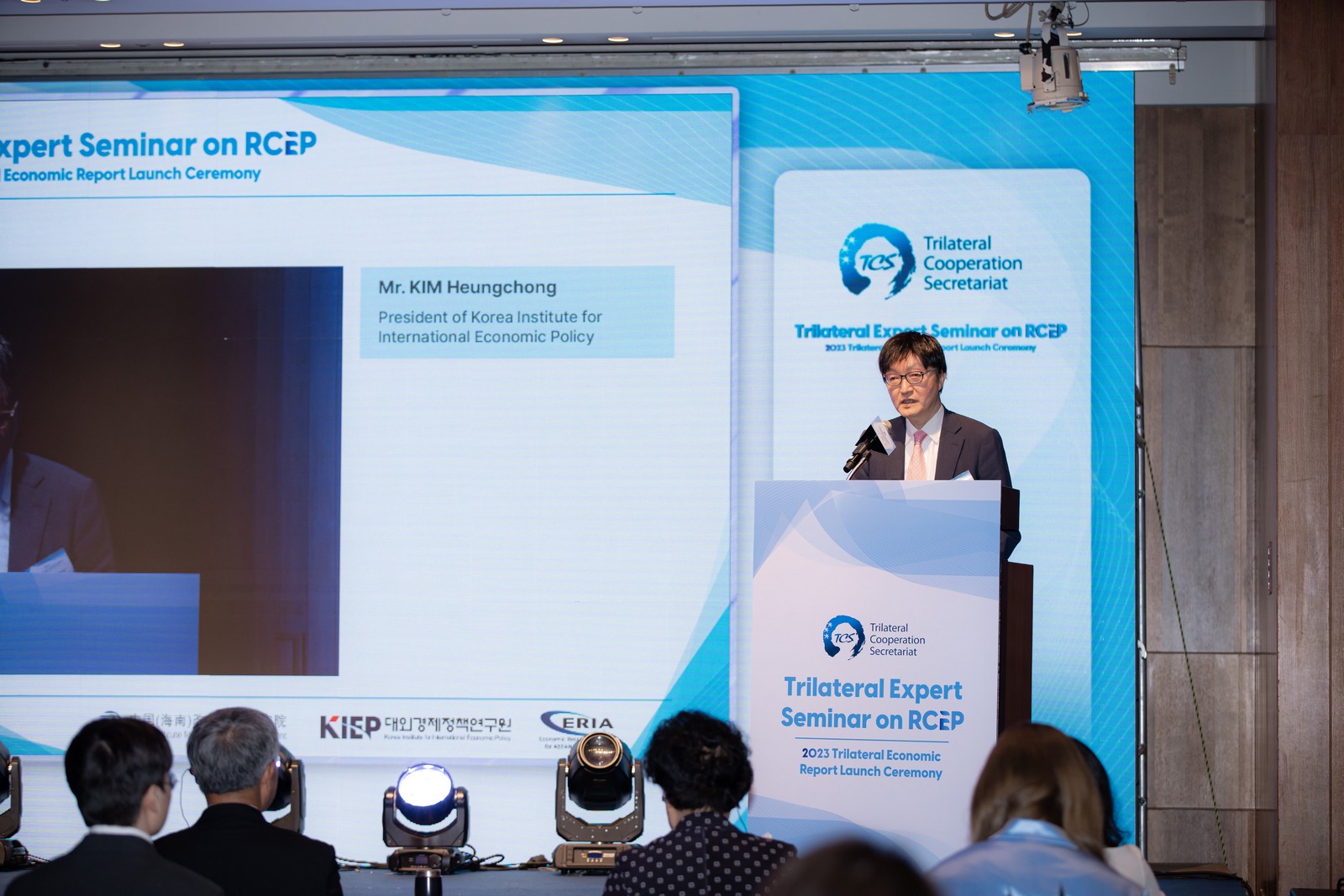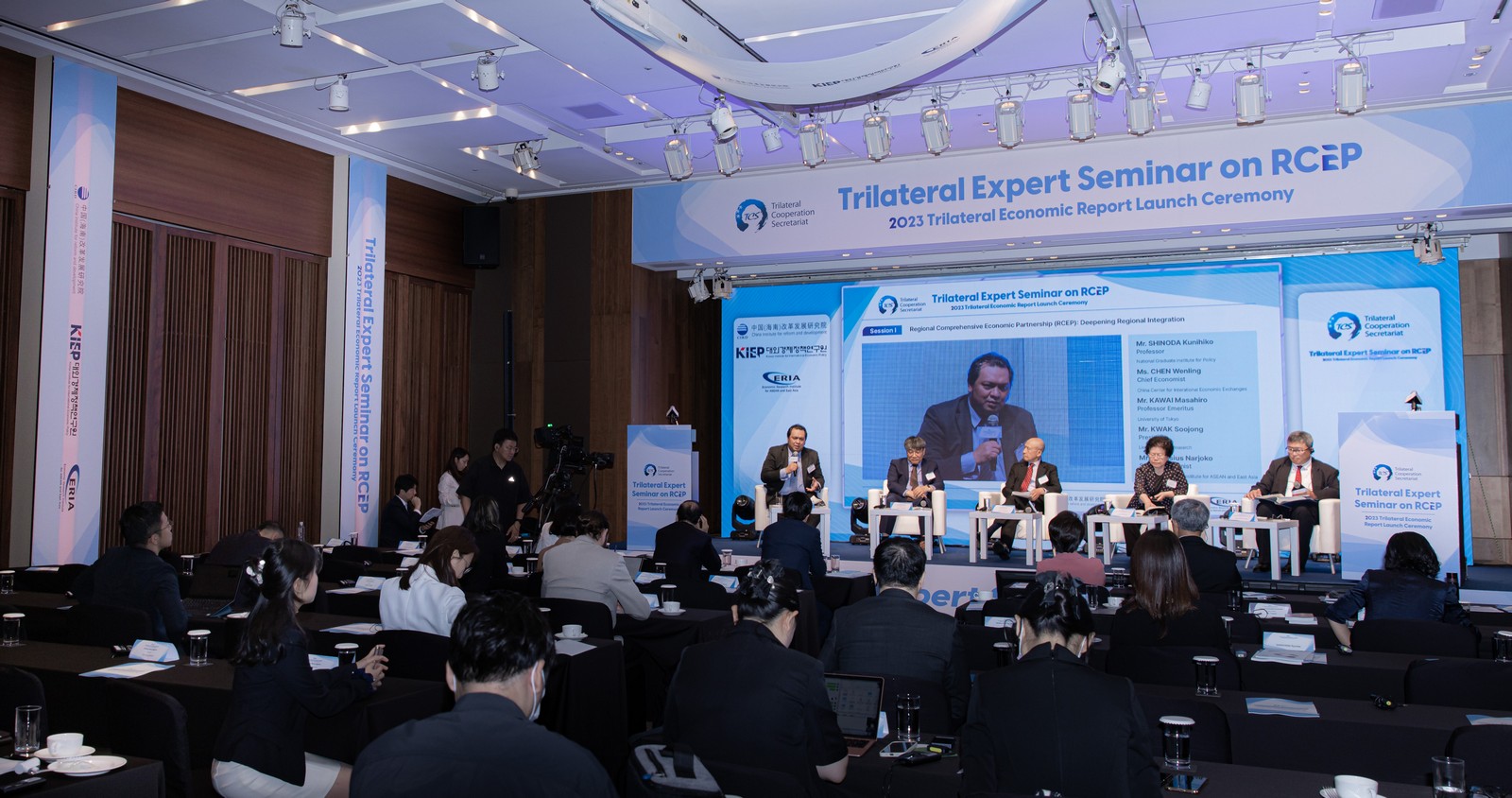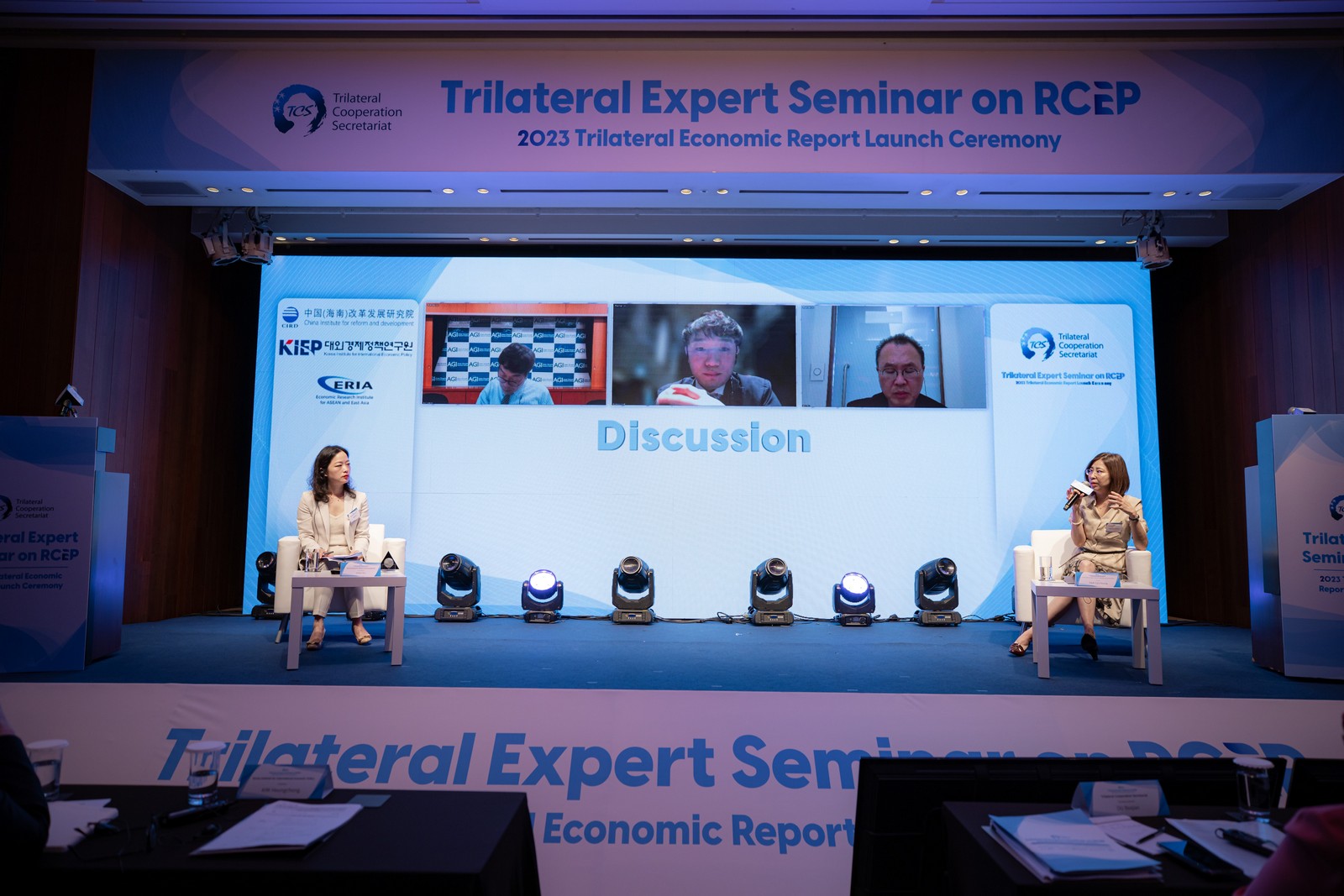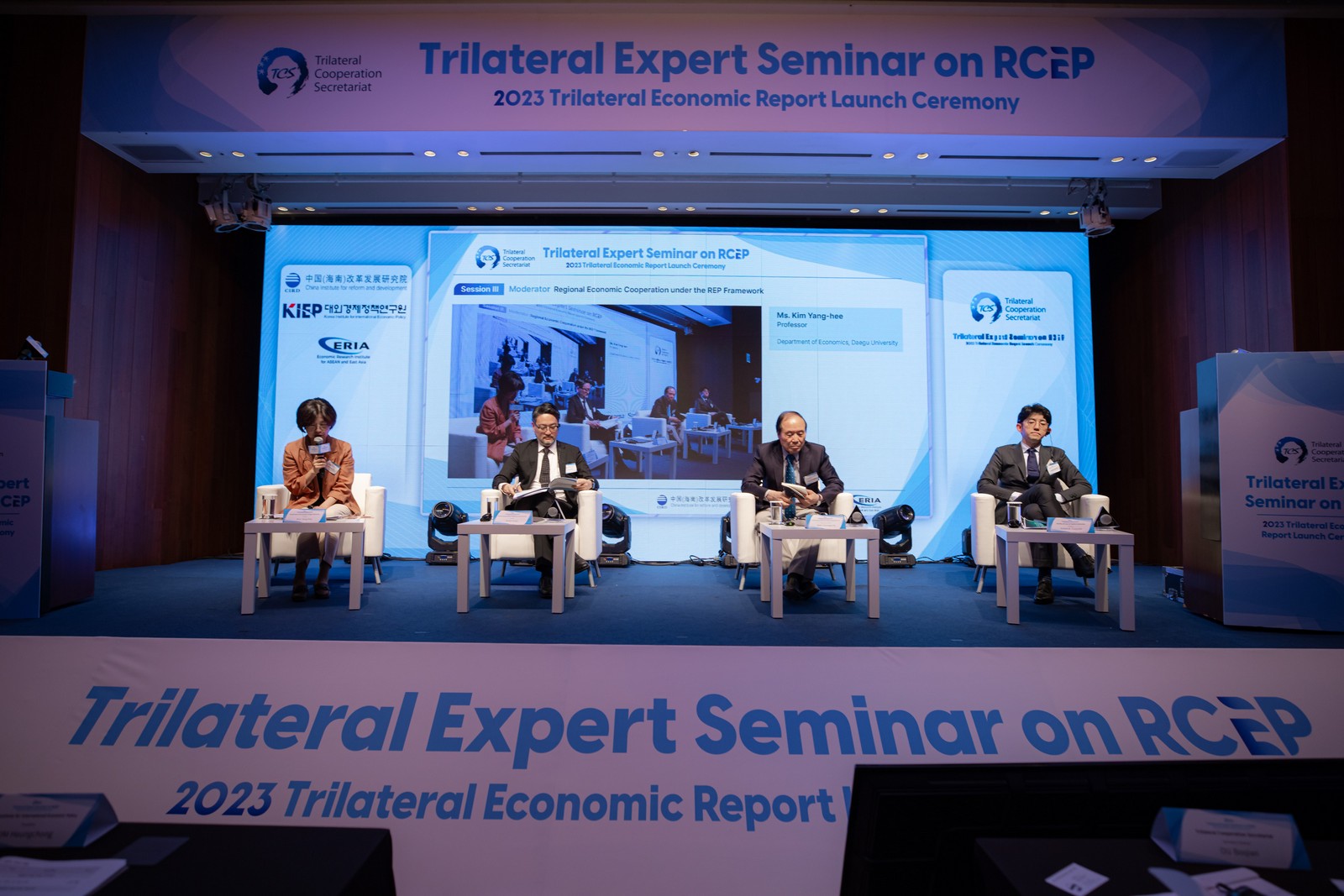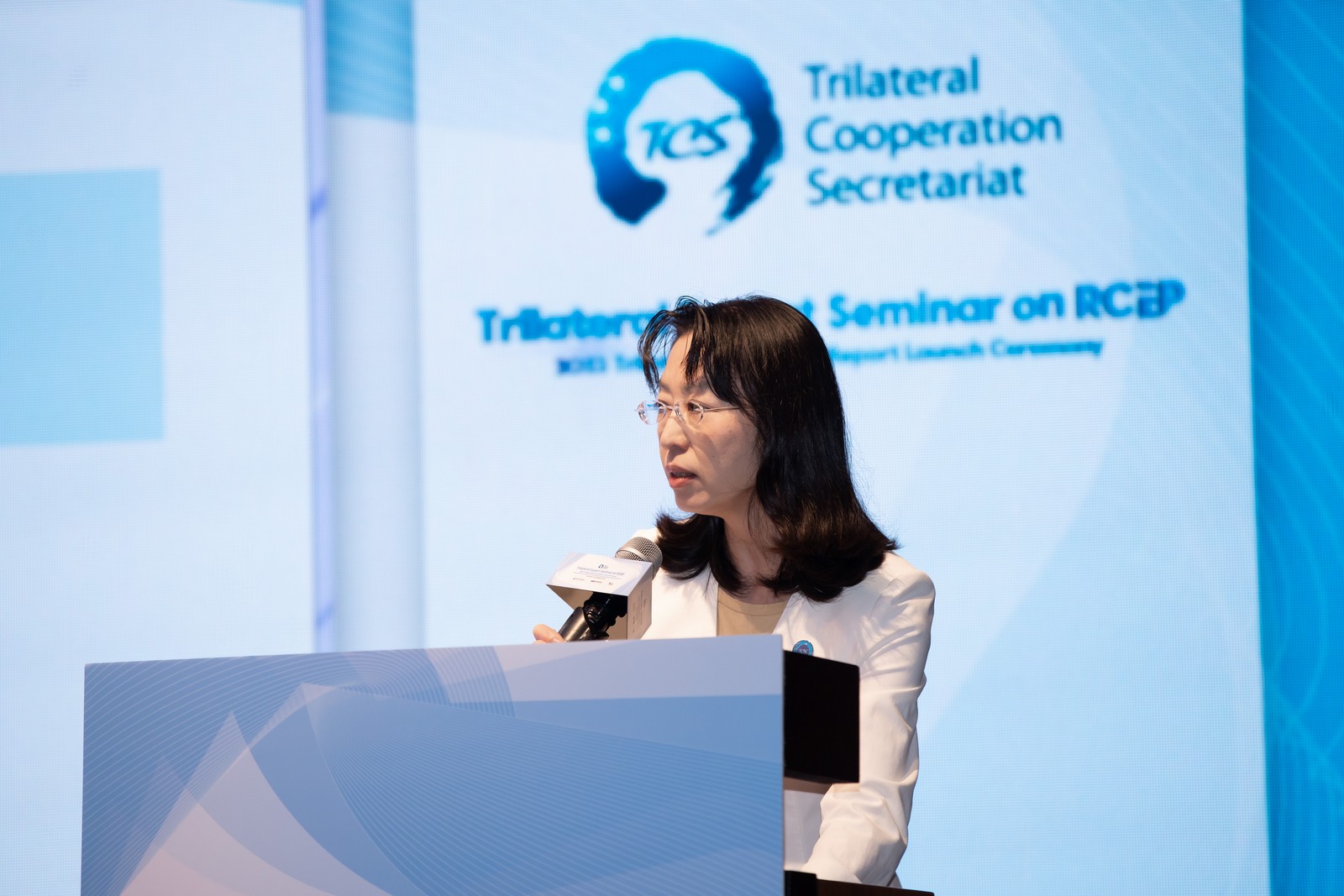- Trilateral Expert Seminar on RCEP & 2023 Trilateral Economic Report Launch
- June 22, 2023
On June 22, 2023, the Trilateral Expert Seminar on RCEP and 2023 Trilateral Economic Report Launch took place in Seoul, Republic of Korea. The event, hosted by the Trilateral Cooperation Secretariat, aimed to discuss cooperation in RCEP implementation, maximizing its economic impact, and regional economic integration. TCS Secretary-General OU Boqian delivered the opening remarks, while keynote speeches were delivered by Chi Fulin, President of China Institute for Reform and Development, Aladdin D.Rillo, Senior Economic Advisor of Economic Research Institute for ASEAN and East Asia, and Kim Heungchong, President of Korea Institute for International Economic Policy.
Secretary-General OU Boqian highlighted that
RCEP, along with its cumulative rules of origin, has yielded significant
benefits to member countries in terms of trade and supply chains. However,
challenges such as geopolitical interference in economic activities and
structural competition in manufacturing also exist. She emphasized the
importance of China, Japan, and Republic of Korea utilizing the opportunities
presented by RCEP to optimize the regional division of industries and enhance
cooperation in emerging economic sectors, including the digital economy, green
economy, blue economy, cross-border e-commerce, and recreational industry.
President Chi Fulin emphasized the significant
role of RCEP in deepening service trade cooperation among China, Japan, and ROK.
Firstly, the growing complementarity of service trade between these countries
has made it a focal point for promoting economic and trade cooperation.
Secondly, the key to enhancing service trade cooperation under the RCEP
framework lies in market opening, while avoiding “decoupling and breaking the
chain” and encouraging greater market access. Thirdly, as regional economic powerhouses,
China, Japan, and ROK have a crucial role as facilitators in the RCEP process
and are well-positioned to lead in implementing “fully cumulative” rules of
origin. President Chi emphasized the need to grasp the prevailing trends,
eliminate hindrances, resume CJK FTA negotiations, and jointly strive to
establish the world’s largest high-level free trade area in order to deepen
cooperation among the three countries within the RCEP framework.
Mr. Aladdin D.Rillo discussed the advantages of
the rules-based multilateral trading system and highlighted the objectives of
RCEP in strengthening regional value chains. He emphasized the importance of
ASEAN, China, Japan, and ROK enhancing cooperation, improving regional trade
connectivity, and bolstering supply chain resilience. Mr. Aladdin emphasized
that deepening trilateral cooperation within the RCEP framework is crucial for
the successful implementation of RCEP and achieving deeper integration in East
Asia.
President Kim Heungchong highlighted that RCEP
will greatly contribute to enhancing supply chain cooperation and bring member
countries together as a united economic community. He stressed that RCEP would
serve as a foundation to resume FTA negotiations between China, Japan, and ROK,
which have halted since 2019. Lastly, he concluded that Trilateral Cooperation
is essential in solving uncertainties in the global economy and emphasized that
RCEP will play a pivotal role in strengthening trilateral economic cooperation.
The seminar brought together 18 leading experts
from China, Japan, ROK, and ASEAN. In Session I, participants shared their
insights on regional economic performance and integration in China, Japan, and ROK,
emphasizing the importance of strengthening economic cooperation among the
three countries. Session II focused on the implementation of RCEP at the
national and local levels. Participants identified common challenges in this
area and discussed strategies for future growth through RCEP, suggesting that
cooperation should be fostered at the local level to deepen economic ties among
the three countries. Session three discussed the significance of regional
economic cooperation within the RCEP framework. Participants recognized the
potential for cooperation among the three countries under RCEP, particularly
highlighting the important role that policy exchanges can play. It was noted
that Asia will play a vital role in the global economy in the future, with
China, Japan, and ROK serving as the economic powerhouses and driving engines
of the world economy.
The seminar received support from China
Institute for Reform and Development, Economic Research Institute for ASEAN and
East Asia, and Korea Institute for International Economic Policy.
